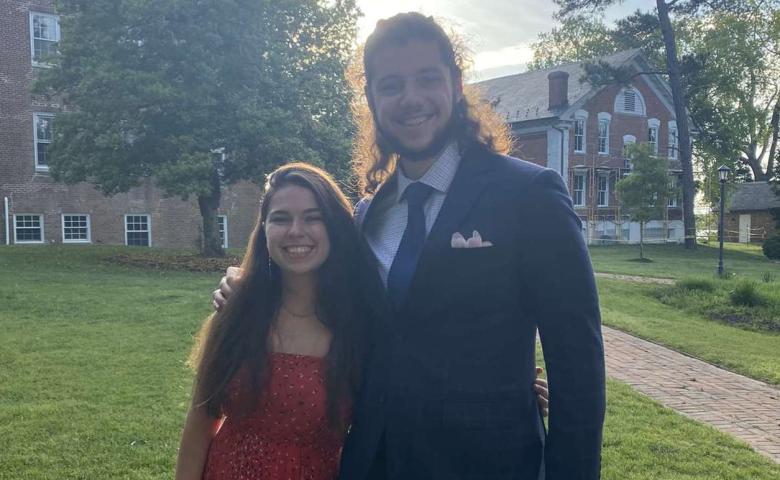
St. Mary’s College of Maryland Alumni Rustin Pare ’21 and Mira Willson ’21 presented during the joint annual meeting of the American Ornithological Society and Society of Canadian Ornithologists, August 9-13, with Pare winning the Best Undergraduate Presentation Award. Both presentations were based on the St. Mary’s Project research they did while students with Professor of Biology J. Jordan Price.
Pare’s talk was titled, “Vocal Coordination Between Male and Female Carolina Wrens (Thryothorus ludovicianus),” which focused on female vocal behavior in the Carolina wren, a temperate species whose females do not perform the highly coordinated duets with males for which other tropical members of the wren family (Troglodytidae) are known. Pare recorded the vocalizations of male and female wrens in their territories, then used a software program to quantify whether these vocalizations are coordinated more or less than expected by random chance. This analysis showed that male and female wrens perform a coordinated duet which is not dissimilar to those performed by tropical wren species even though female Carolina wrens appear to have lost complex songs.
Willson’s talk was titled, “The Loss of Female Vocal Complexity but not Duetting Behavior in the Ancestors of Carolina Wrens (Thryothorus ludovicianus),” in which she reconstructed the evolutionary history of female vocal behavior in the ancestors of Carolina wrens using a phylogeny of the family Troglodytidae to investigate how female vocalizations have changed in their complexity and coordination with males. Her results showed that the evolutionary ancestors of Carolina wrens produced female vocalizations that were more acoustically complex and more male-like than the rattle calls of current females, suggesting past selection against complex female song. However, vocal coordination with males has decreased relatively little since the common ancestor of all wrens. Her study shows that female Carolina wrens have lost vocal complexity over time while maintaining coordination with male songs, suggesting that these two aspects of female behavior have evolved independently and perhaps have different functions.



